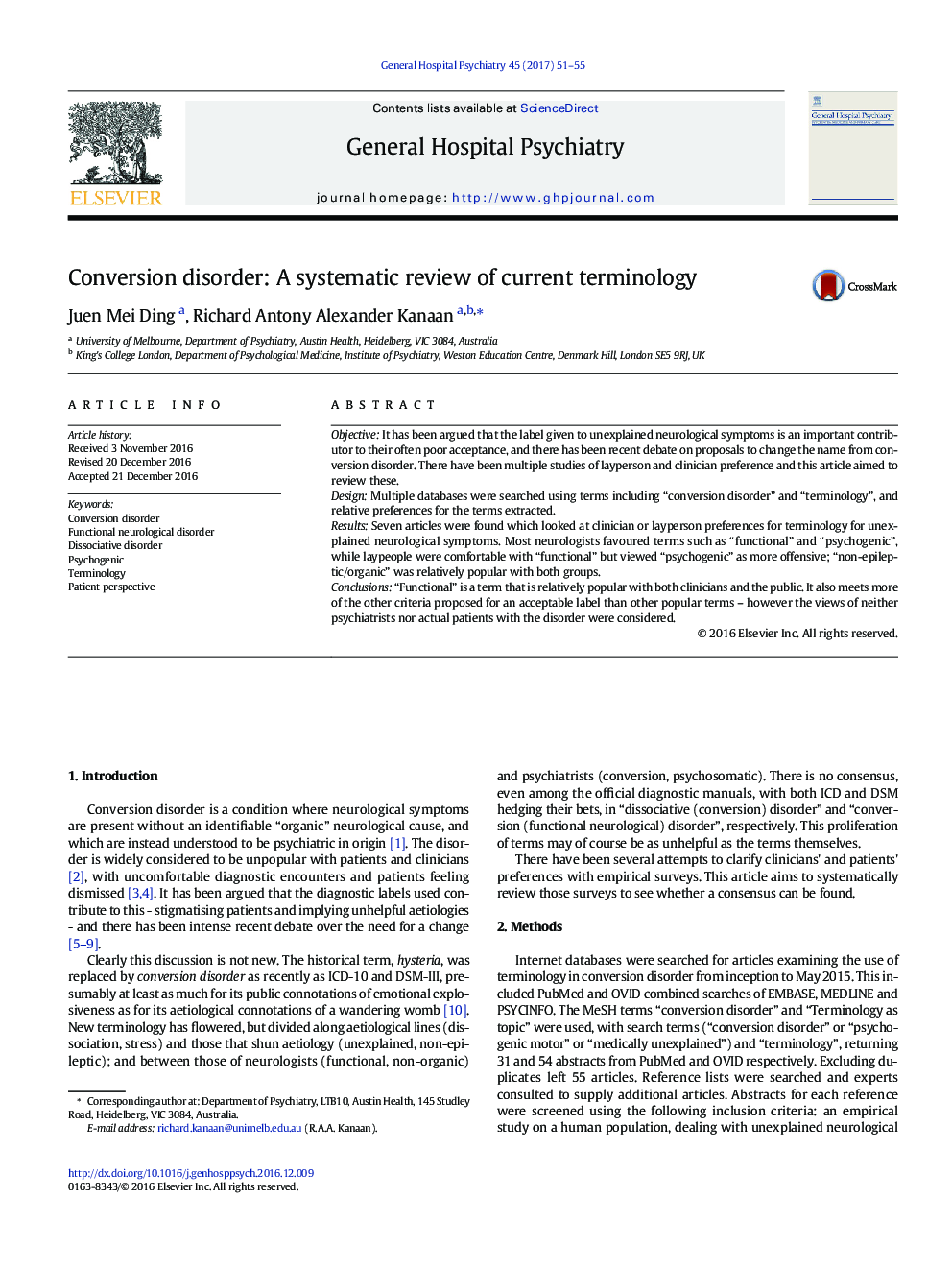| Article ID | Journal | Published Year | Pages | File Type |
|---|---|---|---|---|
| 5652337 | General Hospital Psychiatry | 2017 | 5 Pages |
â¢Labels for unexplained neurological symptoms contribute to their poor acceptance. We reviewed papers on label preferences.â¢Neurologists favoured “functional”, “psychogenic” or “non-epileptic/organic”; the public viewed “psychogenic” as offensive.â¢The views of neither psychiatrists nor patients with the disorder have been surveyed.
ObjectiveIt has been argued that the label given to unexplained neurological symptoms is an important contributor to their often poor acceptance, and there has been recent debate on proposals to change the name from conversion disorder. There have been multiple studies of layperson and clinician preference and this article aimed to review these.DesignMultiple databases were searched using terms including “conversion disorder” and “terminology”, and relative preferences for the terms extracted.ResultsSeven articles were found which looked at clinician or layperson preferences for terminology for unexplained neurological symptoms. Most neurologists favoured terms such as “functional” and “psychogenic”, while laypeople were comfortable with “functional” but viewed “psychogenic” as more offensive; “non-epileptic/organic” was relatively popular with both groups.Conclusions“Functional” is a term that is relatively popular with both clinicians and the public. It also meets more of the other criteria proposed for an acceptable label than other popular terms - however the views of neither psychiatrists nor actual patients with the disorder were considered.
